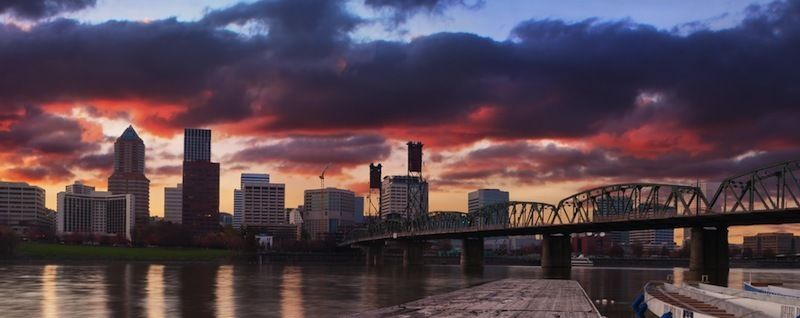Bootstrap Medicis

OF THE many self-celebrations I hear about Portland these days, one that tickled my ears recently was a comparison between Stumptown’s current cultural flowering and that of 15th-century Florence.
Anyone who’s ever braved the tourists to take in Brunelleschi’s Basilica of San Lorenzo or Michelangelo’s David can testify to the depth of hyperbole in that statement. By contemporary standards, though, any burg of our size that boasts a spectrum of recent accomplishment stretching from the Classical Chinese Garden to our Ace Hotel, Pink Martini to Blitzen Trapper, and a Pok Pok chicken wing to a Fenouil tart must have something going for it. But if we really want to apply the Florentine analogy, let’s not just fancy the blossoms; let’s dig into the roots.
Behind Florence’s extraordinary cultural ferment, of course, was a family of bankers, the Medicis, whose largesse basically underwrote most of the Italian Renaissance. Portland’s cultural awakening, by contrast, has been a mostly grassroots affair. Alicia J. Rose, the genius “talent procurement specialist” behind the lineup at Mississippi Studios, argues that so much creativity thrives here because so many artists can afford to own their homes. That stability has bred a kind of inward focus that allows folks to look beyond fads, money, and, maybe most of all, competition. Whether it’s star chefs, rising musicians, or ambitious young architects, they don’t compete in Portland—they share.
I recently polled a handful of local historians with the question of what single defining feature has most made Portland Portland. Each answered with a person—but not a powerful figure of the political elite like Tom McCall or Neil Goldschmidt. Instead, they offered up Portlanders who may not have such marquee names but who were smart, generous, creative, and fun. Chet Orloff picked Thomas Lamb Eliot, the Unitarian minister who played pivotal roles in founding everything from the city’s parks system to the Portland Art Museum to Reed College. William Robbins picked Bud Clark, our iconic, lederhosen-sporting, bike-pedaling, exposing-himself-to-art mayor. And Carl Abbott picked Ursula K. Le Guin, whose intellect and talent as a writer are equaled only by her affection for her adopted home and her kindness to its writers.
With that spirit in mind, we shaped this month’s feature—The People’s Guide to Portland Now, a look at some of the wonderful things to do in our city—by asking ourselves not just what makes Portland Portland, but who is making it Portland. Some of these folks you’ll know, and a lot of them you won’t. Yet, passions like theirs are animating this cultural moment, whether it’s by serving as a board member for the largest roller-derby league in the country, collecting vintage vinyl records, or simply being a connoisseur of local spirits. Let’s call them the bootstrap Medicis. Lucky for us that in Portland, they seem to be marching in a wonderful polyrhythm.
RANDY GRAGG
Editor in Chief
